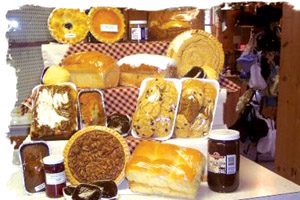Drop in food prices anticipated during festive season
by Gamini WARUSHAMANA
[email protected]
The Secretary to the Ministry of Trade, Dr. R.M.K. Ratnayake said
that food prices will drop during the festive season.
International commodity prices are going down and freight charges too
have been slashed and we observe that local market prices are on the
decline, he said.
 Market analysts, however, said that since markets are not competitive
and not functioning efficiently the advantage of the international
commodity price reduction is not passed on to the consumers. Market analysts, however, said that since markets are not competitive
and not functioning efficiently the advantage of the international
commodity price reduction is not passed on to the consumers.
Therefore, Sri Lankan consumers pay higher prices for goods and
services, they said.
The advantage of slashing crude oil price - from $147 in July to $48
last week - has not been passed on to the people.
The crude oil price has reduced by 68%. from July and on November 6
the government reduced fuel prices by 30%, but transport cost reduced
only by 10%, they said.
According to the CPC price formula with taxes (except the recently
introduced Rs.10/litre tax on petrol) in November diesel and petrol
prices should be Rs.75 and Rs.90 per litre. The imprudent hedging
contract signed by the Ceylon Petroleum Corporation prevents a further
reduction of fuel prices.
Dr. Sirimal Abeyrathne of the Department of Economics, University of
Colombo said that during the past three months international commodity
prices have dropped by 20-50%. This includes wheat, rice and other
grain, sugar, milk powder and crude oil.
Market sources said that at today's international price a 400g milk
powder packet can be sold at Rs.225, however, the market price remains
at over Rs.260.
The international prices decline is continuing and prices were
between US$ 3,200-3,300/tonne last week. A few months ago the price was
at its peak - US$ 4,700-4,800/tonne and the price decline is over 30%.
A leading milk food company said that they are considering a 10-15%
price reduction.
However, pressure from the government to reduce the milk food price
cannot be expected because government wants to keep imported milk food
prices high to protect and promote the local dairy industry, analysts
said. The recently introduced import tax has increased the prices of
milk food and sugar.
In the rice market, the fixed price mechanism has adversely affected
consumers. Today consumers have to pay a higher price for low quality
rice. According to the present cost structure, a market price of good
quality rice should be around Rs.50/Kg. However, consumers pay Rs.65/kg
for low quality rice.
Dr. Ratnayake said that since this is a domestic issue the Ministry
does not bother about it. Imported rice can be sold at Rs.35/kg at
today's international price, he said.
The objective of these price policies is protecting farmers and
boosting local agriculture. However, consumers have to compensate the
cost of all the inefficiencies in the agricultural sector, analysts
said.
According to the Director, Price and Wages of the Department of
Census and Statistics, D.C.S. Gunawardana, if the commodity price in the
local market adjusts with the declining international price, inflation
will dip by 5%.
He said that there is a huge gap between the consumer price and
producer price of vegetable, fruits and fish and those markets too are
not competitive.
The intermediaries get a huge profit and neither the farmers nor the
consumers benefit, he said.
Today, inflation is at double digit level and is declining since last
June. Point to point inflation stood at 28.2 in June and it has dropped
to 20.2 in October. |
